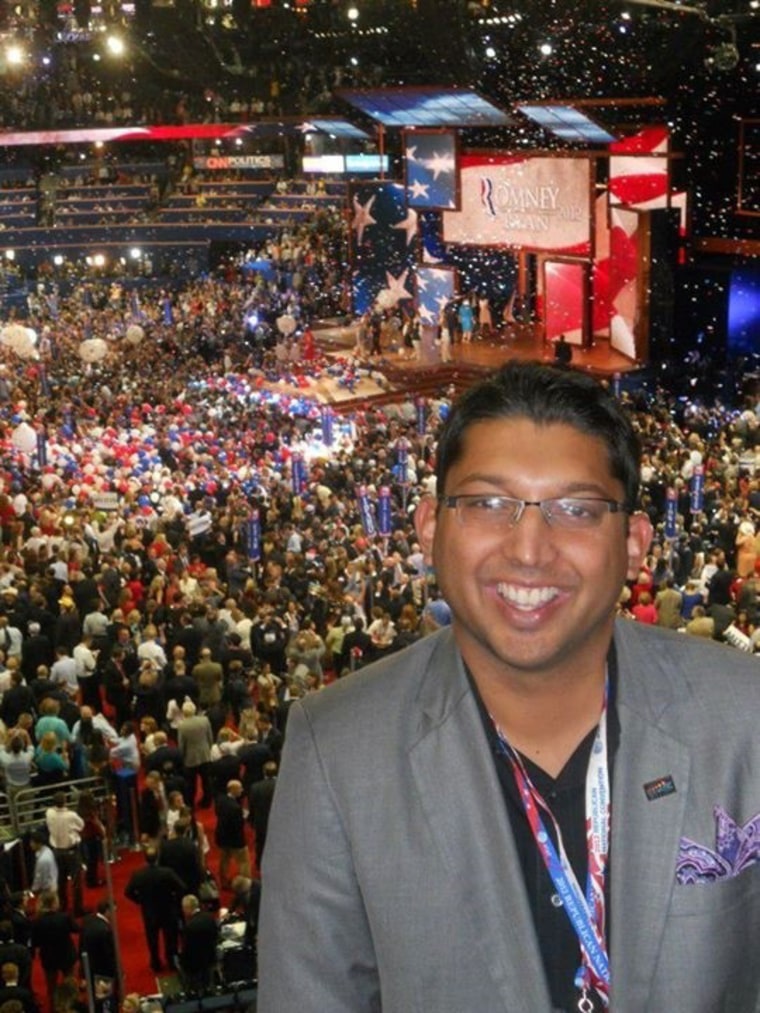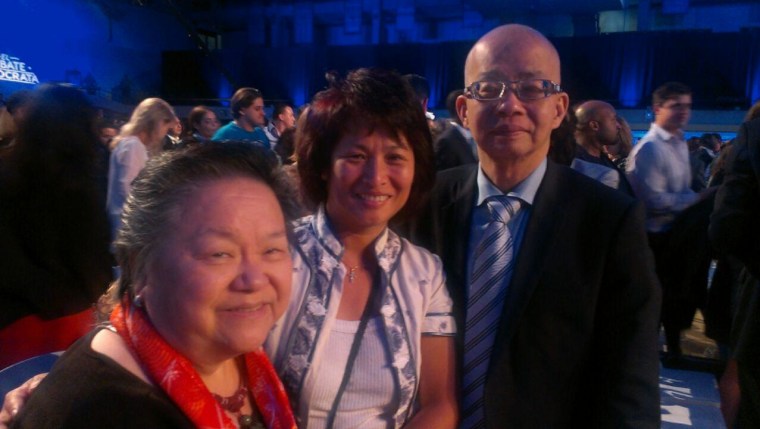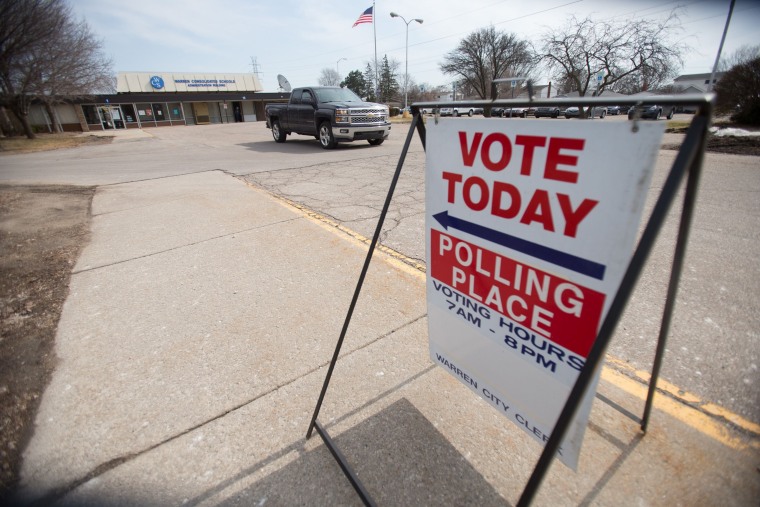Florida is the largest prize in both parties' presidential primaries Tuesday, with 246 Democratic delegates and 99 Republican delegates up for grabs. On the GOP side, the state's delegates are winner-take-all, enough to push Donald Trump closer to being the GOP's nominee.
That makes Aakash Patel, 32, a wanted man.
He’s an undecided Republican voter.
“I was a Bush supporter from day one and have not decided yet where I’m going,” Patel told NBC News. “You’re kind of upset with the choices you have if you’re a Republican.”
RELATED: Enthusiasm High Among Young Asian Americans, But Outreach Is Low
Patel, born in New Jersey to Indian immigrants from Africa, is a member of Tampa’s thriving Indian-American community, the largest Asian group in Florida.
According to the U.S. Census, three percent of Florida’s population is Asian-American, roughly half the proportional size of the national average.
As an active participant in politics, Patel sees himself as a bit of an outlier. He said the Indian community and most Asian Americans he knows keep mostly out of public life and attend mostly to work and family.

But Patel is different. He’s worked in Washington as an aide in Congress. He sees Govs. Bobby Jindal and Nikki Haley as role models, and he said he may consider running for elected office one day. Currently, he serves as a governor’s appointee to the Early Learning Coalition of Hillsborough County and is active in state politics. It was his direct involvement as a member of the host committee for the 2012 Republican Convention in Tampa that got him hooked on the GOP.
In 2012, Democrats held a slight edge over Republicans in Florida's Asian-American community, 46 percent to 33 percent according to a survey conducted by Lake Research Partners for Asian Americans Advancing Justice — Asian American Justice Center, APIA Vote, and the Asian American Institute. But while Democrats outnumbered Republicans in the state, the 2012 survey found that Florida had more than twice the proportion of Republican Asian Americans compared to the rest of the country.
Asian Americans in Florida also had a dramatically higher negative opinion of how things were “going in the country for people like you" and lower favorability ratings for Obama and the Democrats and higher ratings for Romney and the Republicans.
Four years later, Patel says it all seems like the perfect setup for a candidate like Donald Trump.
“The reason he's appealing to everybody is that he’s frustrated with the way the country’s run, and there’s a lot of people who are frustrated. Indians are frustrated, ” Patel said. “I think he’s relating to the people better than any other candidate.”
RELATED: Young Asian-American Republicans Troubled by What Trump Is Doing to Their Party
But the question that remains for Patel is whether Trump can truly lead the country should he become the next president or if the things he said during the campaign was all for show.
“That’s why I’m uncertain as a 32-year-old Republican business owner,” Patel said. “In this state, I’ve seen Sen. Rubio do a good job. I don’t know Sen. Cruz. I haven’t seen him lead. Gov. Kasich? He’s not as relatable.”
RELATED: In Hawaii Republican Caucus, a Fight for the GOP's Future
While the 2012 Asian American Survey found that Florida's Asian-American community leans more Republican than the rest of the country, most of the community still sided with the Democratic Party when it came to the values. Democrats had an advantage on health care, education, and immigration. Even on economic and national security, Asian Americans gave a slight edge to Democrats. But nearly a third of all Asian Americans said there was no significant difference between either party.
Winnie Tang says that's something that needs to change before the Asian-American electorate can be taken seriously.

Tang, a 54-year-old Clinton supporter, is more bullish than ever for the Democrats, serving as vice president of the Democratic Women’s Club of Miami-Dade County and as a member of the county’s Democratic Executive Committee.
An immigrant from Macau who moved to Florida in 1987 from Queens, New York, Tang said she wanted to challenge herself to learn English and not fall into the trap her friends did back in the large immigrant communities of New York.
“They were about friends, family, job. Typical immigrants, that it,” Tang said.
“You’re kind of upset with the choices you have if you’re a Republican.”
Tang said her friends stayed isolated and uninvolved, but since coming to Florida, Tang has taken leadership training with OCA, an Asian-American advocacy group, and felt the urge to empower her new community.
“I asked, ’How come there are no Asians?’ We need a seat at the table,” Tang said.
While she is an Asian-American face at public meetings in South Florida, she still feels the community plays a “very marginal role.”
“Right now, our voices are still under the radar,” Tang said. She noted that many Asian Americans don’t want to commit to one side and prefer a kind of independence, but Tang believes that Asian Americans have to take sides if they are to make a difference.
“We can’t stand in the middle,” she said.
RELATED: New Super PAC Launches, Aims to Increase Asian-American Votes
If Trump becomes the Republican nominee, she’ll lose respect for the GOP, she said.
“He’s a rude individual,” Tang said. “He has no substance and shows no respect for others. He may be good at real estate, but this country has a lot of issues. It’s not just about making a deal. The United States is not a deal.”
Follow NBC Asian America on Facebook, Twitter, Instagram, and Tumblr.
